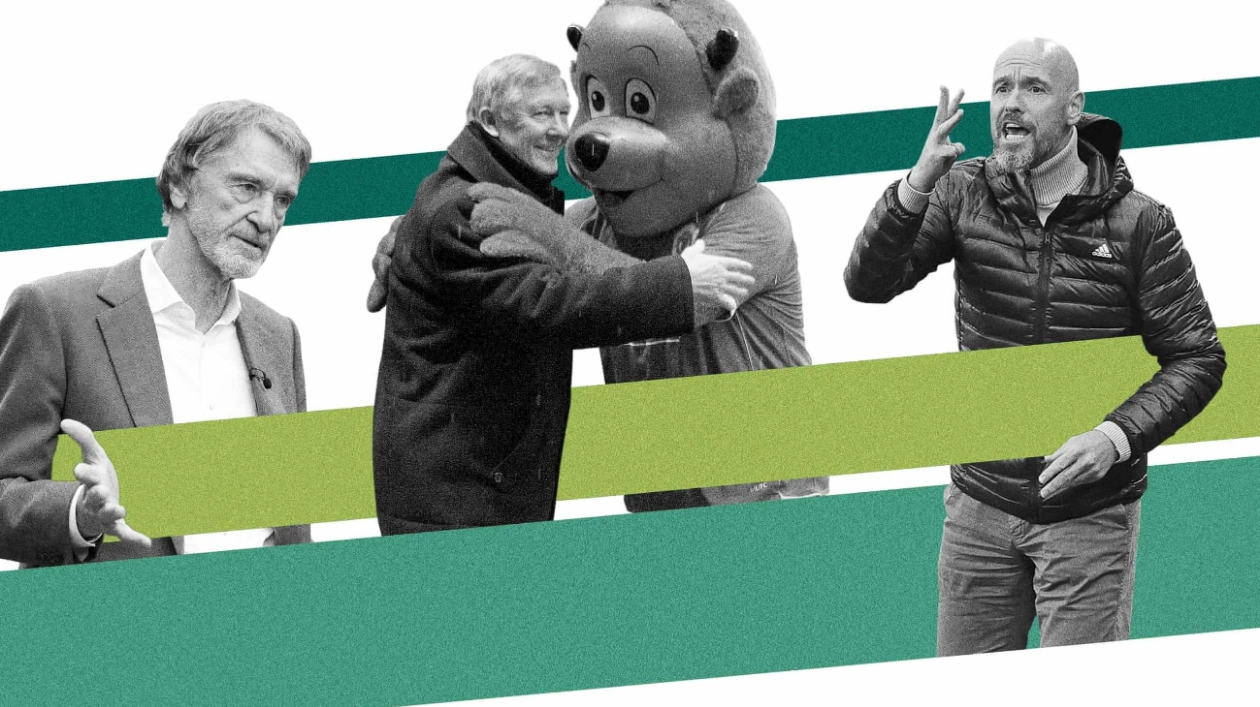On Sunday, Aston Villa, currently holding the fifth position in the league standings, possibly fatigued from their exhilarating victory over Bayern Munich on Wednesday, played to a 0-0 draw against a team situated in the lower mid-table. Under typical conditions, this result might not have been particularly exciting, especially given that Brighton managed to come back from a 2-0 deficit to defeat Tottenham, and Chelsea's match against Nottingham Forest devolved into a 15-man brawl. However, we are discussing Manchester United, a club whose ongoing drama continues to captivate despite the passage of over 11 years since Sir Alex Ferguson's departure. How can a team with the most English league titles and the highest average attendance consistently falter so badly? The fundamental principle of football is that wealth tends to prevail; for United to persistently defy this rule signifies a remarkable dedication to mismanagement.
There is undoubtedly a sense of schadenfreude among many who recall United's relentless dominance in the late 90s, but there is also a broader appeal: this is akin to Henry VI or Succession, a timeless narrative of the elite grappling and failing spectacularly. It's a failure elevated to comedic heights due to the opulent circumstances. Matches that should be mundane, like draws against Twente or Villa, somehow remain gripping.
Initially, when things started to go wrong, cameras would often focus on Ferguson, his stern expression a haunting reminder of past glories. Now, there is a new focal point: the stern, bespectacled, bald men, dubbed by Irish journalist Dion Fanning as 'the politburo of bullshit,' who were appointed to oversee the football operations after Sir Jim Ratcliffe acquired roughly a quarter of the club in February. So far, their revolution seems to have entailed little more than redundancies, enforcing an end to remote work despite insufficient office space, and reducing staff benefits, making life less pleasant for those at Old Trafford, while seeking public funds for a new stadium. The new ownership appears to be a continuation of the old, just more abrasive.
It seems far simpler to convert hospitality suites into temporary offices or to cut back on staff lunches than to make the crucial decision to replace a manager who seems increasingly incapable of turning the tide. The front cover of the fanzine 'United We Stand' aptly depicted Erik ten Hag, standing off-center with his characteristic bowed head, as rain drenches him. This paradoxical legacy of Ferguson means that every subsequent manager must be given time, as no one wants to address what might have happened if Mark Robins hadn't scored that crucial FA Cup winner against Nottingham Forest in 1990, preventing Ferguson's potential sacking before his first trophy win.
The question now is, how could Ten Hag have been so impressive at Ajax? How did he guide them to within seconds of a Champions League final? How did they thrillingly defeat Juventus and Real Madrid? Yet, he now manages a team that is routinely exposed, defying the modern axiom that success stems from being compact. None of the players from that 2019 Ajax side, not even Frenkie de Jong, have truly progressed as expected, not just those who ended up at Manchester United. Perhaps Ajax's traditions and methods brought their own cohesion. By the end of Ten Hag's final season, despite winning the league for the third time in four years, defensive issues emerged: they kept only three clean sheets in the last 12 games. This was overlooked, but it might have been a warning.
Just as Ajax, despite its internal conflicts, brought coherence, perhaps United does the opposite. Ten Hag is not alone in finding the club descending into chaos; United may have won 20 league titles, but these were achieved under only three managers. History reveals periods of turmoil between Mangnall and Busby, and between Busby and Ferguson. The soap opera continues.






